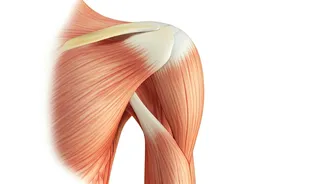Aging and Shoulders
Shoulder issues are common among older adults, often impacting daily activities. Age-related wear and tear, combined with decreased muscle strength and flexibility,
can lead to conditions like rotator cuff tears, osteoarthritis, and frozen shoulder. These conditions can cause pain, limited range of motion, and reduced quality of life. Understanding these age-related changes is the first step in addressing and preventing shoulder problems. Regular exercise, proper posture, and avoiding overuse are crucial for preserving shoulder health. Consulting with a healthcare professional can help identify early signs of issues and tailor a plan for managing and preventing shoulder problems. Addressing shoulder health proactively ensures a better quality of life for seniors, allowing them to remain active and independent. Additionally, maintaining a healthy lifestyle, including proper nutrition and avoiding smoking, contributes to overall musculoskeletal well-being. Taking care of your shoulders is not just about alleviating pain, but also about maintaining mobility, independence, and the ability to enjoy everyday activities without discomfort. By prioritizing shoulder health, seniors can live more fulfilling and active lives.
Protecting Your Shoulders
Preventative measures are essential for protecting the shoulders of older adults. Simple, everyday actions can significantly reduce the risk of injury and maintain shoulder function. Practicing good posture is crucial, ensuring the shoulders are aligned correctly, which minimizes strain and stress. Engaging in regular, low-impact exercises, like swimming or walking, strengthens the muscles around the shoulders and enhances overall flexibility. Avoiding activities that involve repetitive overhead motions or heavy lifting without proper technique is also vital. When lifting or carrying objects, use proper form: keep the back straight, bend at the knees, and hold the load close to the body. This technique reduces the stress placed on the shoulder joints. Regular stretching can also improve flexibility and range of motion, helping to prevent stiffness. If you experience shoulder pain, it’s crucial to seek medical advice promptly. Early intervention can prevent minor issues from becoming severe. Additionally, maintaining a healthy weight reduces the strain on the joints, contributing to overall shoulder health. Simple changes can help seniors protect their shoulders and maintain an active, pain-free lifestyle.
Expert Insights and Care
Consulting with an orthopaedic surgeon offers valuable insights into maintaining shoulder health. A healthcare professional can provide personalized advice based on individual needs and health conditions. They can assess the shoulder's condition, identify potential risks, and recommend tailored treatments. Regular check-ups allow for early detection of issues such as rotator cuff tears or arthritis, ensuring prompt treatment. Surgeons can guide seniors on specific exercises and lifestyle changes to improve shoulder health. These changes might include physical therapy to increase strength and flexibility or modifications to daily routines to avoid overuse. Staying active is very important, however, it is essential to be mindful of physical limitations and to avoid overexertion. Furthermore, incorporating a balanced diet with adequate calcium and vitamin D supports bone health and can contribute to the overall well-being of the shoulder joint. A multidisciplinary approach, combining medical advice, physical therapy, and lifestyle adjustments, offers the most effective way to safeguard shoulder health for older adults. Seeking expert guidance promotes both immediate relief and long-term joint health, which enhances the quality of life.















